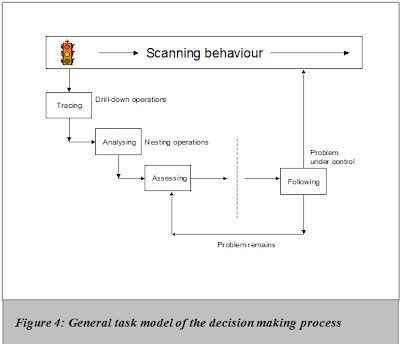
The “need” for information can be caused by four types of modes (Vandenbosch, 1997). When managers have no intention or specific purpose to find anything and are just viewing some data it is called undirected viewing or scanning which is often the case in the first sub phase of the decision making process. This is similar to undirected surfing on the internet. At the extreme other end of the continuum, we find the formal search mode which is “a deliberate effort to find a piece of information” (Aquilar, 1967). This is also referred to as focused searching.


